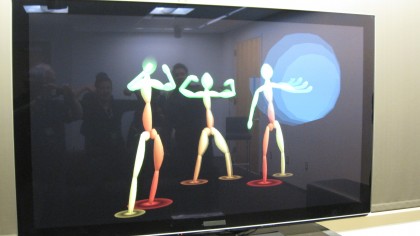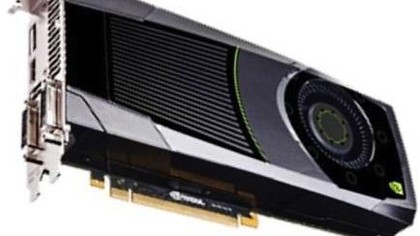360 director: Xbox One lacks the wow factor
"You kind of feel the old model that has really been running for twenty five plus years of: you make a game and it's on a cartridge or a piece of optical media and it sits on a shelf at retail for fifty, sixty bucks of more, and it plays on a box that I bought at retail for two, three, four thousand bucks.
"You just kind of feel that whole thing crumbling a little bit, and it will be really interesting to see how that trend continues in the early years of the new consoles."

Kinect takes centre stage
With the One, Xbox now runs off Kinect as its lifesource, which could also prove a turn-off for gamers who are less inclined to break away from the controller.
"I am not a big fan of forcing that functionality," says Reid on making the Xbox reliant on Kinect. "If it makes sense, that's great, but why did I need to have Kinect stuff for voice commands in Mass Effect 3? It feels forced at that stage. You've got this interesting technology, but what is the real killer application of it, or do you just have interesting technology?"
Of course, it's impossible to bring up Kinect without mentioning its inspiration - the Wii. Nintendo's console launched one year after the Xbox 360, and rocketed to the top despite its lack over graphical horsepower.
"We were all like 'holy cow, this Nintendo Wii thing," says Reid, recalling the early days of the console. "At first, it was like 'this looks like a joke' and then it was like 'Jesus, this thing is on fire'"
As time went on and the Wii grew into more of a threat, Microsoft became more and more aware that it needed to take action. "So Sony did their thing and Xbox did Kinect."
Sign up for breaking news, reviews, opinion, top tech deals, and more.
The prisoner's dilemma
But without its killer app - motion gaming - it's highly unlikely that the Wii would have survived alongside the 360 and PS3. Reid even stops to consider a potential fate of the PS3, which launched with its own risky weapon.
"Sony must have got themselves in a bit of a prisoner's dilemma about Blu-ray because the cost of that was so high at the time when they were launching, but the strategic importance to Sony as an electronics company was so huge, there really wasn't any other way to do it," he says.
"What if Sony had a console that didn't have a Blu-ray drive? What would have happened? Maybe they would have sold more units, but maybe Blu-ray would have totally failed."
PS4 will support 4K (as will the Xbox One) but Reid believes that Sony is now "on a much clearer footing", not taking any Blu-ray-level gambles this time around.
And let's not forget Microsoft's decision to board the ill-fated HD DVD train with its own peripheral support for the 360. "That was enough to put a speed bump into Blu-ray's adoption for a bit," says Reid smirking, "but that didn't last."

The PC advantage
But perhaps the biggest challenge to the console right now is the PC. In the eight years between the Xbox 360 and Xbox One, PC gaming has grown, evolved, adapted, while the smartphone/tablet gaming onslaught has attacked from the other side. All of which has changed gamers expectations for the new generation.
"It won't be long before there are huge AAA games on the tablets, that will make it tough in the console space," says Reid, drawing on one classic example - the iOS game Infinity Blade.
The ability of the PC to refresh itself year on year means the console becomes too quickly vulnerable to being outpaced - and smartphones are beginning to nip at the home console's heels.

Hugh Langley is the ex-News Editor of TechRadar. He had written for many magazines and websites including Business Insider, The Telegraph, IGN, Gizmodo, Entrepreneur Magazine, WIRED (UK), TrustedReviews, Business Insider Australia, Business Insider India, Business Insider Singapore, Wareable, The Ambient and more.
Hugh is now a correspondent at Business Insider covering Google and Alphabet, and has the unfortunate distinction of accidentally linking the TechRadar homepage to a rival publication.